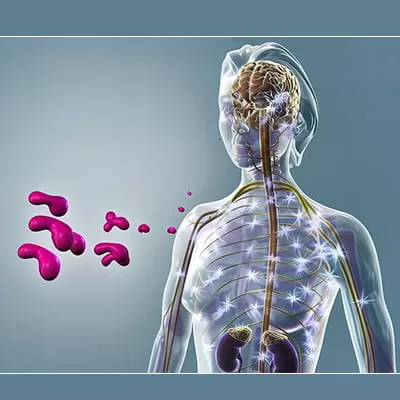India and Drug Resistance
India as a nation has struggled with various diseases historically, like tuberculosis, cholera, etc., that were largely impacting the population in rural areas.
However, there are many reasons behind the incidence of these diseases; it is majorly due to their vulnerabilities in accessing improved sources of livelihood. As a result, they were exposed to smoke chulhas, firewood, biomass, and natural hazards like floods, draughts, etc., more often than anybody else.
The government then came up with holistic treatments for these widely prevalent diseases in the form of vaccines like Pneumococcal, Tetanus, Pertussis, Measles, etc. However, some conditions, like tuberculosis, require medicines to be consumed for a more significant period of time.
This prolonged or inappropriate consumption of allopathic(chemical-based drugs) medicines has induced drug-based resistance in patients.
Before diving in further, let’s first understand what drug resistance is.
Anti-Microbial resistance, popularly known as drug resistance, is when bacteria, viruses, fungi, parasites, and other microorganisms evolve in ways that make the drugs used to treat the infections ineffective. The microorganisms that have developed resistance to most antibiotics are referred to as superbugs.
According to a study conducted under the guidance of senior Indian Council of Medical Research (ICMR) scientist Dr. Kamini Walia, “the data analysis carried out between January 1 and December 31, 2021, indicated a sustained rise in drug-resistant pathogens, making it difficult to treat some infections with currently available medications.” She warned, “if quick action is not taken to address the problem, antibiotic resistance might soon become a pandemic.”
It is a significant problem since a resistant virus might be lethal, infectious, and expensive for both people and society. As a result, authorities at the national and global levels have been quite concerned about it. Here is the situation when the Indian government started to believe in Complementary and Alternative Medicine(CAM), i.e., Homeopathy: the alternate medicine which has the potential to fight the disease and leaves no side effects.
Why is drug resistance not seen in the school of homeopathy?
The whole idea of being infected with a viral or bacterial attack is the body’s inability to fight the foreign agent that’s harmful to the body. Antigens and Antibodies are the two medical terminologies here. Antigens are foreign agents, such as bacteria, viruses, chemicals, toxins, and pollens, that force the immune system to produce antibodies against them. Our immune system creates antibodies to fight an infection or a foreign agent.
An antibody is a protein-based immune system element that travels through the blood and detects and destroys foreign entities like bacteria and viruses. Antibodies remain in circulation in the blood after exposure to antigens, acting as a defense against additional vulnerabilities. Homeopathy, a conventional mode of medicinal treatment, works on the principle of “like treats like.” It stimulates the body’s healing ability to disease and uses diluted medications that react quickly, addressing the root cause.
It is an alternate systems of medicine that seeks to stimulate the body’s defense mechanism to prevent or treat illness and is widely used to treat long-term ailments. For example, Homeopathy has proven strength in treating allergic disorders and chronic conditions like kidney transplants, paralysis, respiratory illnesses, etc.
Avail Free Counsultation
Increasing inclination toward Homeopathy

Homeopathy, the alternate systems of medicine, works on the principle of “Treat the disease and not the patient.” It treats the patient on the basis of symptoms. Samuel Hahnemann gave the principle of “Single Medicine Theory” in ORGANON, i.e., mini doses (giving only one medicine at a time) under homeopathic philosophy. He stressed that “the core idea of treating the disease from the root will only be achieved when this principle is met in the treatment process.” Otherwise, it will be a suppressive treatment like any other school of medicine
Why is a homeopathic physician specialized in treating all kinds of diseases?
The whole idea of treating the symptoms and not the disease makes it a complete and unique form of treatment. Homeopathic science works on the principle of symptomology. Therefore, a specialized professional is not required to treat a condition, but any homeopath can prescribe medicine after understanding its severity. However, the entire prescription will be tailored to the patient’s requirement individually, but the management(diagnosis, consequences, causes), etc., will be prepared according to the disease
Why is drug resistance not seen in the school of homeopathy?
Earlier in the classical theory of homeopaths, every symptom of the patient, including physical and mental symptoms, generalities, and other particulars, was examined to begin the treatment process. And unfortunately, it could only cure 50-55% of patients. But the current theory works on the principle of “Mind is Man,”as Dr. James Tyler Kent stated. It believes in analyzing the patient’s brain, i.e., mental symptoms, to examine his condition comprehensively.
The disease occurs when there is distortion in the flow of life force, and homeopathy helps regulate the life force. Homeopathy is known to treat the patient and not the disease. Homeopathic solutions are tailored to provide individualized treatments. Homeopathic science believes that every patient has a unique disease history and requirements. While one course of medicine may work for one patient, it may not work for the other.


Great post! I found the information really helpful and easy to understand. Thanks for sharing!